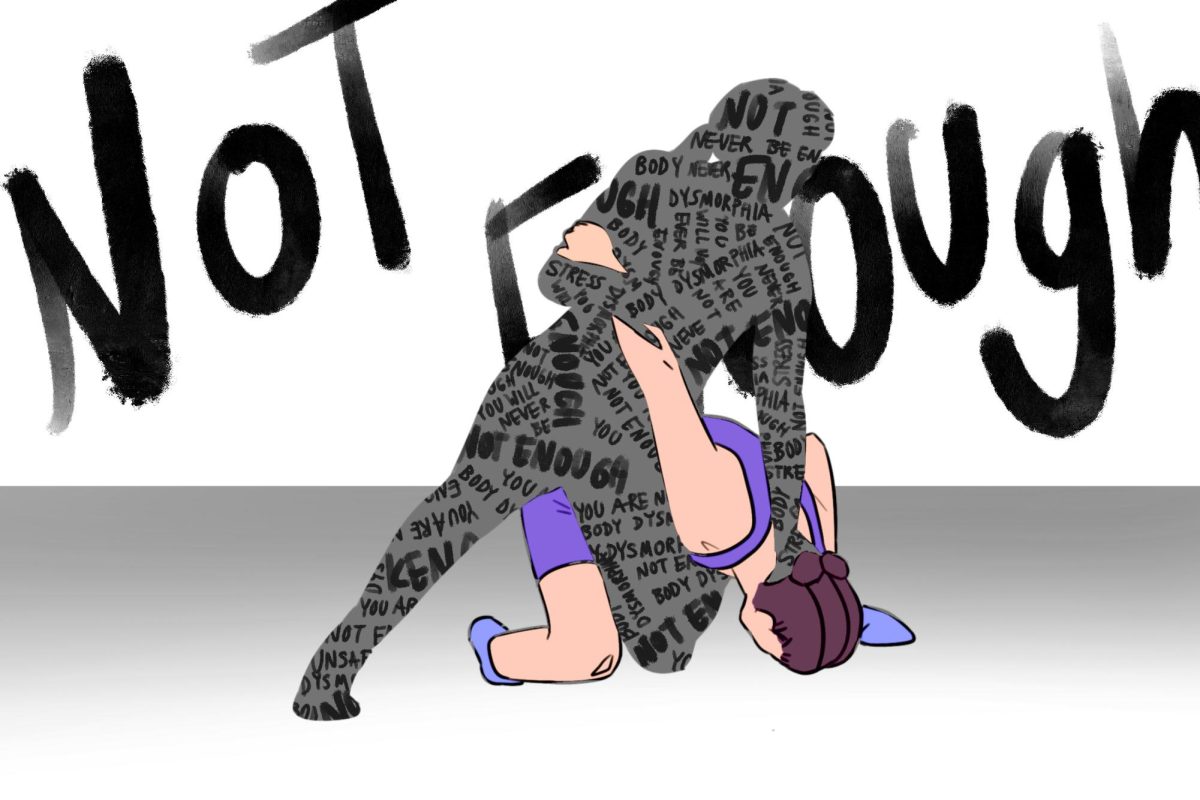Spectators and fans don’t see behind the scenes. They see the focused student-athletes ready to battle their opponent on the court, pitch or track. They don’t see — and thus forget — that outside of their sport, tens of hours go into the athletes’ craft each week, pushing their bodies and maintaining a strict regime to reach peak performance levels while managing both studying and growing up.
While mental health is an ongoing conversation in classrooms and pitches alike, the university is working toward bettering its student-athletes. The NYU Athletics Department created the UltraViolet mental health hub that includes resources on its website.
“Being a college student-athlete comes with its own unique set of mental health challenges, and athletes are often reluctant to ask for help for a variety of reasons,” the UltraViolet home page reads. “This site provides resources we hope will help you to elevate your mental health and wellbeing.”
Despite advertising itself as a student-athlete mental health resource, NYU fails to provide resources that are explicitly for its athletes, rather universitywide advice and links. The Get In Touch page only lists the NYU Wellness Exchange hotline, a service available to all NYU students. Furthermore, when attempting to set up a counseling appointment, the UltraViolet page only lists the universitywide wellness exchange email.
In addition to UltraViolet, junior Kaley McIntyre and sophomore Calista Lynch of the NYU women’s swim team started their own branch of The Hidden Opponent, a nonprofit advocacy group that raises awareness and offers support for student-athlete mental health. They credited “the lack of recognition or support from the school” as a motivator for starting the group.
“When I found out about the impact, resources and community that THO had, I immediately jumped at the opportunity to continue my passion for mental health at NYU,” Lynch previously told WSN.
Senior wrestling captain Danny Lightfoot wants to change the “gritty” and “macho” stereotype of the sport — that the goal of a wrestling bout is to aggressively pin one’s opponent to the mat.
“I think there’s a big stigma when talking about mental health within the sport of wrestling,” Lightfoot said. “Don’t get me wrong, there are some guys who are open to talking about mental health. But then there are also a lot of people who make a joke of it and are under the impression of ‘manning up.’”
The emphasis on maintaining a certain physique and weight takes a toll on wrestlers. Before duals, their weight is under intense scrutiny as they are encouraged to either gain or lose a few pounds in a very short amount of time. The team has to constantly monitor their nutrition intake and water weight, on top of the student-athlete struggle of balancing academics and exams.
“There’s a big issue with body dysmorphia. You’re so used to having to maintain a certain weight your whole life. You have coaches telling you that you look chubby when really you’re at your normal weight,” Lightfoot said.
Lightfoot is a strong advocate for men’s mental health, and the team participates in “Movember” — a movement that aims to support male suicide prevention, prostate and testicular cancer, and men’s mental health — annually.
“It helps just finding out that you’re not alone in your problems,” junior wrestler Nicky Bell said. “I spoke to my coach and he helped me see that he and I faced similar problems. I think that’s the first step to breaking the stigma.”
Lightfoot was also featured on NYU Athletics Sports Medicine’s Instagram voicing his concern for the lack of conversations surrounding mental health in the student-athlete world and encouraging these conversations to take place in the locker room.
“Breaking the stigma around mental health, particularly for student-athletes, requires a collective effort,” Lightfoot said in the post. “Whether it’s checking in on an old friend, fostering conversations or advocating resources, your seemingly small gesture can have a significant impact. Living in difficult times it is important to remember that it costs nothing to be kind.”
Student-athletes have been speaking up in hope for more from their departments in terms of mental health resources. While it’s important that the university is offering support for its entire student body, these athletes go through unique sets of difficulties. There needs to be an emphasis on not just how athletes are feeling physically after a tough match, but how they’re holding up mentally as well.
“From a young age, many athletes are told to ‘suck it up’ or do better, and it creates a bad relationship with being able to admit you are struggling with mental health,” McIntyre said. “It is not realistic to be 100% all of the time. It is crucial to realize that you may give 100%, but that it can look different.”
Contact Isabella Bickenbach at [email protected].


























































































































































